During the anti-epidemic period when classes are suspended, a group of doctoral students of the University of Macau (UM) continue with their research studies at home. Under the guidance of their supervisors, many of them have completed their theses. In this article, we interview several students to hear their stories with their PhD supervisors.
Searching for a Cure for the Novel Coronavirus
Luo is a PhD student in the Institute of Chinese Medical Sciences (ICMS). She is now working with Prof Wang Yitao, her thesis supervisor, as well as her other supervisors, to screen drugs in order to find a cure for the novel coronavirus. Her thesis studies how modern medicine and traditional Chinese medicine can be used in combination to treat pneumonia caused by the novel coronavirus. She says Chinese medicine has played an undeniable role in both the combat against Severe Acute Respiratory Syndrome (SARS) in 2003 and the current battle on the novel coronavirus.
Recipient of a gold award at the International Exhibition of Inventions of Geneva, Luo says the originality of her study lies in its focus on the noticeable advantage of combining Chinese and Western medicine in the treatment of patients with confirmed novel coronavirus infection, which hopefully can demonstrate to the world the value and wisdom of traditional Chinese medicine. ‘We will study the cases where patients received the best treatment when modern medicine and traditional Chinese medicine were used in conjunction,’ she says. ‘We will analyse the merits and shortcomings of both, which we hope will provide some valuable information for countries around the world affected by the pandemic.’
Transferring to UM from Overseas to Study with Prof Wang
In 2017, when Luo was studying for her master’s degree at Guangxi University of Chinese Medicine, she met Prof Wang who visited the university to give an academic report. ‘I learned that UM had a well-developed platform for innovative studies in Chinese medicine,’ she says. Upon learning that Luo had already published eight academic articles and obtained seven invention patents, Prof Wang encouraged her to apply to UM for PhD studies.
At the time, Luo had already received an offer from a university in Australia, so she politely declined Prof Wang’s invitation but expressed her wish to consider further studies at UM upon graduation in Australia. However, after studying in Australia for a few months and careful comparison of the two universities, she decided to transfer to UM. She explains, ‘Prof Wang is the first chief scientist appointed to head a Chinese medicine project under the national 973 Programme. I felt if I could study with him, I would reach a new level and find my direction in my academic life.’
Over the past two years at UM, Luo has benefited greatly from a group of dedicated faculty members in the ICMS who are not only knowledgeable and happy to answer students’ questions, but also devote a lot of time and energy advising students in their thesis writing. ‘Take my supervisor Prof Wang for example,’ she says. ‘He always carefully proofreads my thesis and provides valuable suggestions. When I compare my original version with the version revised with his guidance, I could always see the huge difference.’
Innovative Research in Civil Engineering
Yang Xiaohui, a PhD student in the Faculty of Science and Technology, did not return to his hometown, the Inner Mongolia Autonomous Region, for the Chinese New Year. He has been staying on campus during the epidemic. As laboratories at UM are not accessible at the moment, Yang communicates with his advisor Prof Yuen Ka Veng on the internet to carry on with his research study in Bayesian inversion. The study explores the number and the thickness distribution of near-surface layers of the Earth. The paper has been accepted by the professional academic journal Earthquake Engineering and Engineering Vibration and is waiting to be published.
In most existing methods in earthquake engineering, the number of layers is assumed known prior to the process of inversion. Titled ‘Bayesian Rayleigh Wave Inversion without Knowing the Number of Layers’, Yang’s paper proposes a Bayesian nonparametric method for Rayleigh wave inversion. In the proposed method, each model class represents a particular number of layers with unknown S-wave velocity and thickness of each layer. As a result, the determination of the number of layers is equivalent to the selection of the most befitting model class. Yang’s study is innovative and can also provide solutions to key problems in Bayesian inversion. ‘Traditional Bayesian inversion requires a known number of layers. The method proposed by Yang has made an important change by allowing an unknown number of layers,’ says an expert who has read his paper.
Following Advice and Being Self-disciplined
Yang says Prof Yuen has made an indelible contribution to the study. ‘Prof Yuen has attained outstanding achievements in Bayesian studies. I transferred to UM because I admired him,’ says Yang. ‘Prof Yuen not only provides patient guidance, he also cares about my learning progress and my life. It helps me maintain a good mood and focus on research.’
Self-discipline is key to doing research at home. As Yang cannot visit the laboratory regularly like he did in the past, he has made himself a work schedule and strictly follows it every day. He also consults Prof Yuen online about problems he encounters in his research.
New Study Expected to Enhance Academic Writing in Chinese
Liu Rui is a PhD student in the Faculty of Arts and Humanities (FAH). He has been studying at UM for a year and a half now, during which time he has published three conference papers and one English book chapter (which was published by the internationally renowned Springer Publishing Company). Recently, Liu has completed another academic paper and has submitted it to the Journal of Applied Linguistics. The paper is now under review for publication.
Liu’s main research focus is Chinese linguistics. His supervisor is Prof Xu Jie, a linguist and interim dean of the FAH. Liu says: ‘In the early days of the epidemic, Prof Xu reminded us that although the epidemic had disrupted normal life, it was also a period when there were less distractions, so he encouraged us to use this to our advantage to read, think, and do research.’ Under the guidance of Prof Xu, Liu recently completed a paper on the functions and distributions of reporting markers in Chinese academic texts, which is now under review for publication in the Journal of Applied Linguistics. The paper aims to deepen understanding of the linguistic characteristics of Chinese texts. Its systematic and in-depth study of the reporting markers in Chinese academic texts fills the gap in the field. ‘The related findings can be applied in the teaching of academic writing in Chinese to enhance the quality of academic writing in Chinese,’ he says.
Distance Discussion with His Supervisor
Although the epidemic precludes face-to-face interaction, Prof Xu continues to provide guidance to Liu via WeChat and email. ‘Prof Xu shares academic information with me, monitors my research progress, and helps me revise my paper, ’says Liu. ‘The impact of the epidemic on me has been minimal, because my work is mostly done on computer and therefore it is possible for Prof Xu to provide guidance from a distance.’ Liu also makes full use of online resources, including the electronic resources of the UM library, open online courses, and online sharing, to conduct his research.
Liu visited UM to attend an academic conference while he was studying for a master’s degree at Xiamen University. He liked the beautiful and quiet campus and the open and inclusive academic atmosphere, which he found to be very conducive to thinking and research. ‘I was not the only one who felt this way,’ he says. ‘Several other scholars who came to UM with me also expressed the same feeling. Macao is a multilingual society, which is very good for linguistic studies. Prof Xu is a well-known scholar in this field. So I decided to study for a PhD degree at UM with Prof Xu.’
Source: My UM E-Version
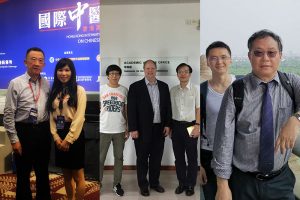
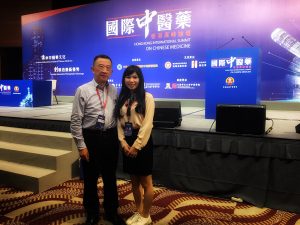
Luo Hua and Prof Wang Yitao attend an academic conference together
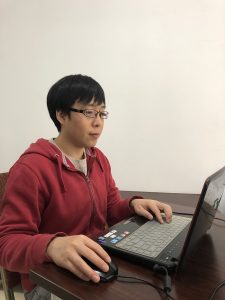
Yang Xiaohui follows a work schedule every day
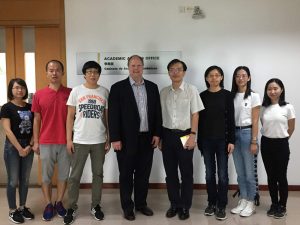
Prof Yuen Ka Veng (4th from right) and his postgraduate students, including Yang, receive Prof Erik Johnson from the University of Southern California.
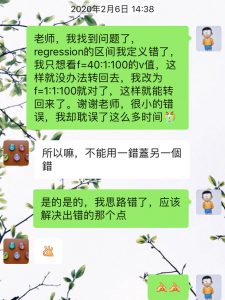
Yang Xiaohui discusses his thesis with Prof Yuen Ka Veng online
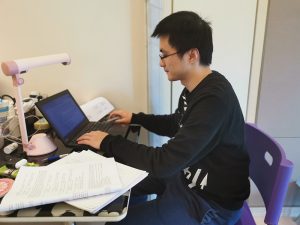
Liu Rui has completed a new research article while ‘cooped up’ at home in Zhuhai
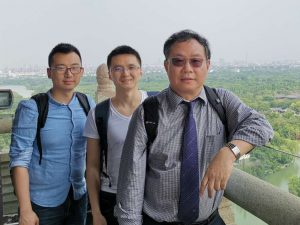
Prof Xu Jie (right), Liu Rui (middle), and student Wen Han who has already graduated from UM.
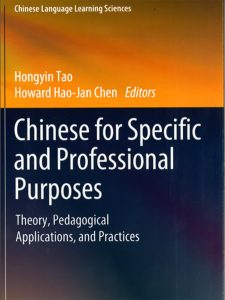
An English book chapter written by Liu Rui has been published by the internationally renowned Springer Publishing House
